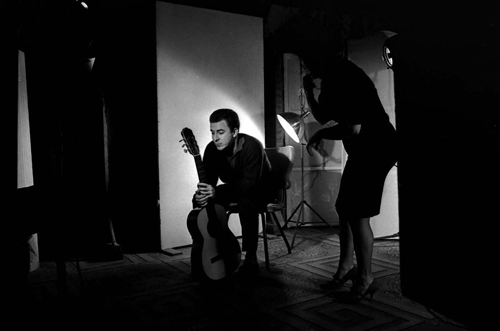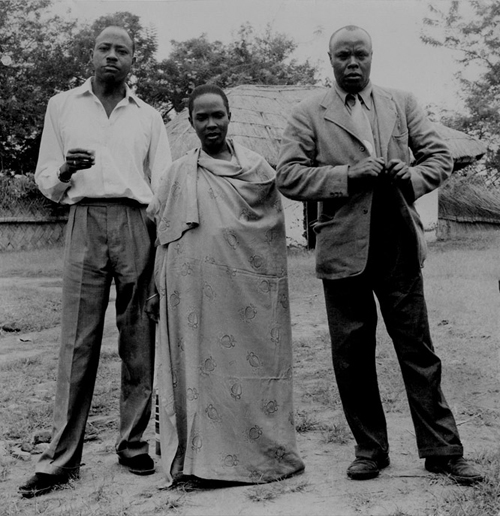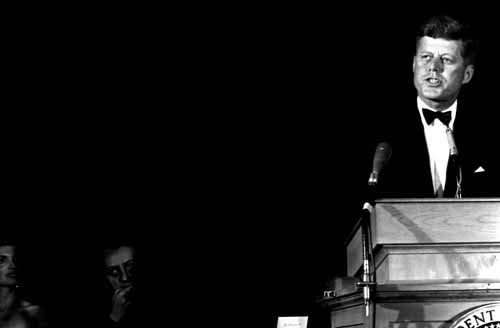Yesterday when I was young
The taste of life was sweet as rain upon my tongue
I teased at life as if it were a foolish game
The way the evening breeze may tease a candle flame
The thousand dreams I dreamed, the splendid things I planned
I always built, alas, on weak and shifting sand
I lived by night and shunned the naked light of day
And only now I see how the years ran away
Yesterday when I was young
So many drinking songs were waiting to be sung
So many wayward pleasures lay in store for me
And so much pain my dazzled eyes refused to see
I ran so fast that time and youth at last ran out
I never stopped to think what life was all about
And every conversation I can now recall
Concerned itself with me, me and nothing else at all
Yesterday the moon was blue
And every crazy day brought something new to do
I used my magic age as if it were a wand
And never saw the waste and emptiness beyond
The game of love I played with arrogance and pride
And every flame I lit too quickly, quickly died
The friends I made all seemed somehow to drift away
And only I am left on stage to end the play
There are so many songs in me that won’t be sung
I feel the bitter taste of tears upon my tongue
The time has come for me to pay for yesterday when I was young
Hier Encore, whose original French title translates as
Only Yesterday, is a song written by
Charles Aznavour and released in September 1964.
It was subsequently released in English as Yesterday, When I Was Young, in Italian as Ieri Si, in Danish as Hvor tiden går, in Japanese 帰り来ぬ青春, and in Spanish as Ayer Aún. It is considered one of Aznavour’s greatest hits.
The English-language lyrics, written by Herbert Kretzmer, tell of a man reflecting on his life. He recounts how he had wasted his youth on self-centered pursuits, and that, now that he is older, he will not be able to do all that he had planned; this implies that he may be close to his impending death.
To listen the English version of this song, please take a gander at The Genealogy of Style‘s Facebook Page: https://www.facebook.com/pages/The-Genealogy-of-Style/597542157001228?ref=hl
“In love, women are professionals, men are amateurs”
François Truffaut
 Truffaut and Marie Dubois on the set of Tirez sur le pianiste (Shoot the Piano Player), 1960
Truffaut and Marie Dubois on the set of Tirez sur le pianiste (Shoot the Piano Player), 1960
The etymology and historical meaning of the term professional is, “from Middle English, from profes, adjective, having professed one’s vows, from Anglo-French, from Late Latin professus, from Latin, past participle of profitēri to profess, confess, from pro- before + fatēri to acknowledge; in other senses, from Latin professus, past participle”.
An amateur (French amateur “lover of”, from Old French and ultimately from Latin amatorem nom. amator, “lover”) is generally considered a person attached to a particular pursuit, study, or science in a non-professional or unpaid manner. Amateurs often have little or no formal training in their pursuits, and many are autodidacts (self-taught).
 Salvador Dalí
Salvador Dalí
 Tippi Hedren and Alfred Hitchcock
Tippi Hedren and Alfred Hitchcock
 Paul Newman
Paul Newman
 Marlon Brando
Marlon Brando
 Spanish bullfighter Luis Miguel Dominguín and Pablo Picasso
Spanish bullfighter Luis Miguel Dominguín and Pablo Picasso
 Bob Dylan, Joan Baez and Peter Seeger
Bob Dylan, Joan Baez and Peter Seeger
 Charles Aznavour
Charles Aznavour
 João Gilberto
João Gilberto
 Dalida
Dalida


Ruwenzori Mountains
 <Muhammad Ali
<Muhammad Ali
 Martin Luther King
Martin Luther King
 John Fitzgerald Kennedy
John Fitzgerald Kennedy
 Washington March
Washington March
Enrique Meneses (1929 – 2013) was born journalist because of his father. He grew up and studied in France, Portugal and Spain because of the Spanish Civil world. He devour life, looking for being wherever something that could be tell happened, becoming along 30 years the most international Spanish reporter. He worked for agencies such as Fotopress or Delta Press, and media like Paris Match, Time, Life or ABC.
He is the author of iconic photographs of the XXth century that illustrate a time, with portraits of historic characters such as Ché Guevara, Fidel Castro and company when they where trying to defeat that dictator Batista, Salvador Dalí, Marlon Brando, Mel Ferrer, Paul Newman, Cassius Clay (Muhammad Ali), Melina Mercouri, Charles Aznavour, João Gilberto o Henry Fonda. As many other historic moments like the fight for civil rights in the USA, the Washington March with Martin Luther King, the tension with the Soviet Union or the Ku Klux Klan.


























